Microwave Components - 915MHZ & 2,45 GHz
Waveguides & flanges
A waveguide is a hollow metal structure that allows the transmission of the electromagnetic waves. Sairem offers standard waveguides at 2.45 GHz, i.e. WR284, WR340 and WR430 and at 915 MHz, i.e. WR975, with or without flanges.
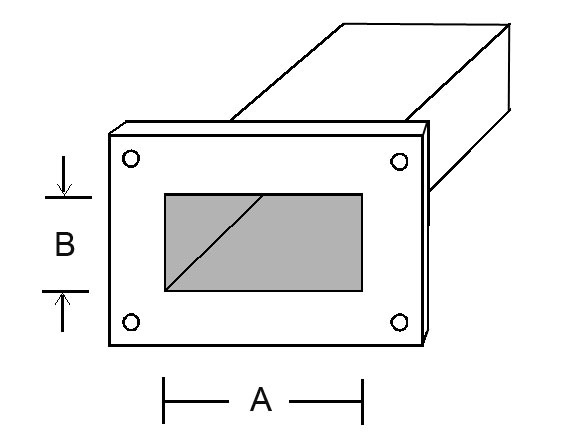
| Waveguide Name | Recommended Frequency | Cutoff Frequency Lowest Order Mode | Cutoff Frequency Next Mode | Inner Dimensions of Waveguide Opening | |||
|---|---|---|---|---|---|---|---|
| EIA | RCSC* | IEC | A inch (mm) | B inch (mm) | |||
| WR284 | WG10 | R32 | 2.60 to 3.95 GHz | 2.078 GHz | 4.156 GHz | 2.84 [72.136] | 1.34 [34.036] |
| WG11 | 3.30 to 4.90 GHz | 2.488 GHz | 4.976 GHz | 2.372 [60.2488] | 1.122 [28.4988] | ||
| WR340 | WG9A | R26 | 2.20 to 3.30 GHz | 1.736 GHz | 3.471 GHz | 3.4 [86.36] | 1.7 [43.18] |
| WR430 | WG8 | R22 | 1.72 to 2.60 GHz | 1.372 GHz | 2.745 GHz | 4.3 [109.22] | 2.15 [54.61] |
| WG9 | 2.20 to 3.30 GHz | 1.686 GHz | 3.372 GHz | 3.5 [88.9] | 1.75 [44.45] | ||
| WR975 | WG4 | R9 | 0.75 to 1.15 GHz | 0.605 GHz | 1.211 GHz | 9.75 [247.65] | 4.875 [123.825] |
Impedance tuners
An impedance tuner is a section of waveguide usually placed between the microwave generator and the applicator used to help optimizing the transfer of energy from the source to the load. Sairem makes impedance tuners that can be operated manually or automated
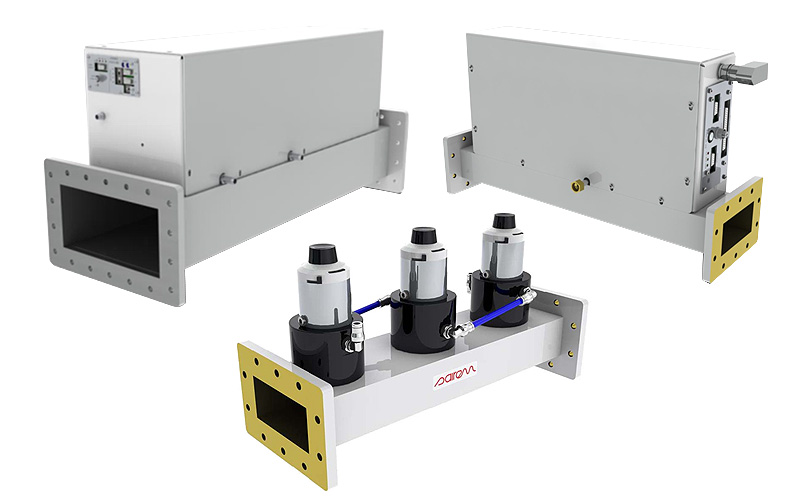
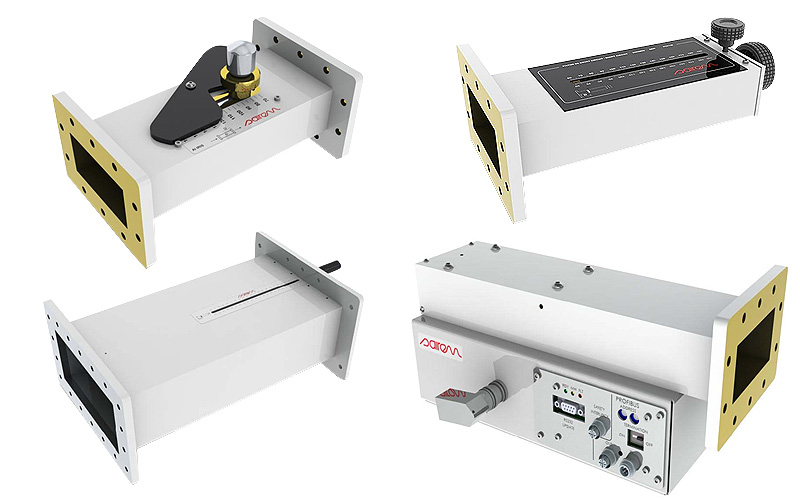
Sliding short-circuits
A sliding short circuit is a waveguide-based component used in tuning applications for the adjustment of the resonance frequency of a mono mode cavity; the sliding short circuit can be also used in connection with a hybrid T for the tuning of microwave applicators at high power. Sairem sliding short circuit features an innovative quarter wavelength non-contact movable short.
Waveguide to coaxial transitions
The function of a coaxial to waveguide transition (adaptor) is to transfer the microwave signal from a waveguide to a coaxial applicator or from a coaxial signal to a waveguide structure. This adaptor has been developed for laboratory and industrial applications up to 300 W at 2450 MHz. The integrated crossbar design allows for an optimized response over a wide frequency band as well as the dissipation of heat from the core of the coaxial cable. The adaptor is tuned for working with a waveguide applicator if the microwave energy is provided from a coaxial exit (for example, Sairem’s solid state microwave generator GMS200W) or vice versa.
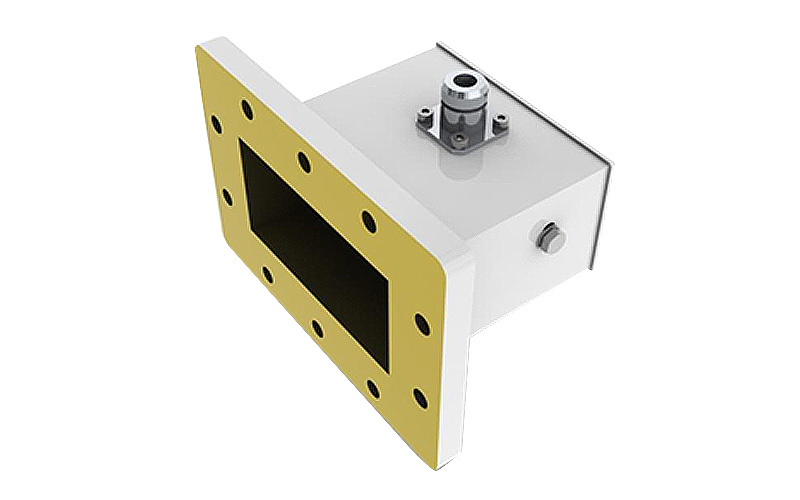
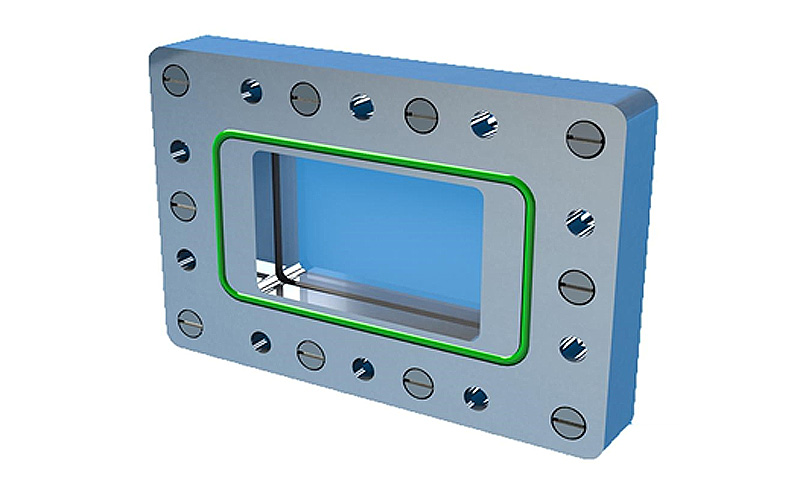
Microwave windows
The role of the microwave quartz or PTFE window is to transfer the microwave energy between two media without inducing any reflected power. The window allows the separation of different environments at pressure close to atmospheric; in addition, the PTFE window can be used as a ‘light barrier’, i.e. hides the light emitted by plasma that could trigger off the arc detector installed in some microwave generators.
Twists, bends E & H plans
These waveguide components allow changing the direction of the waveguide port; they can be equally used for polarization purpose.
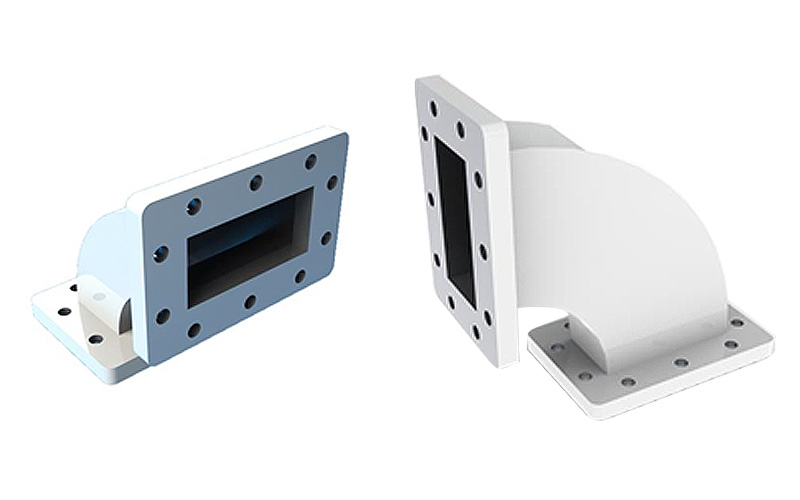
SAIREM has developed hand held or wall mounted detectors designed to measure and alarm if microwave leakage is detected in the immediate vicinity of a microwave system (industrial microwave oven, laboratory & industrial installations). These detectors operate at 915 MHz or 2.45 GHz.
Wall-mount microwave detector DFM
The microwave survey meter DFM is a system designed to measure and alarm if microwave leakage is detected in the immediate vicinity of a microwave system (industrial microwave oven, laboratory & industrial installations). The DFM is to be fixed on a wall, up to 20 m from the system to be surveyed.
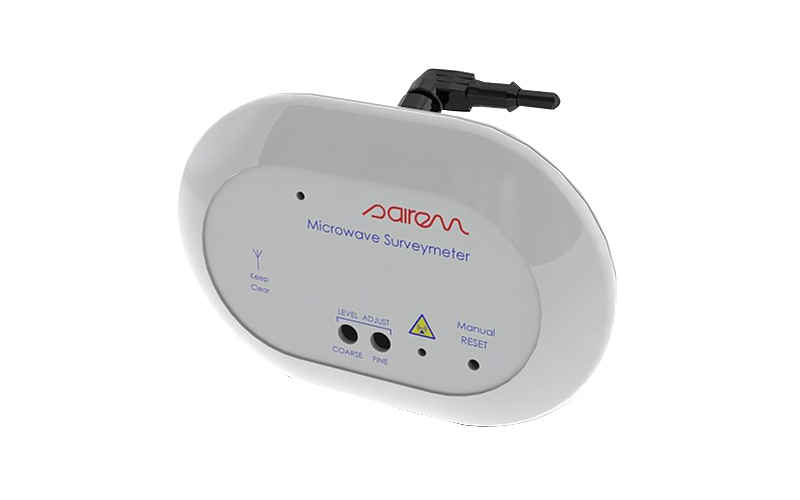
Hand held microwave detector IFP at 2.45 GHz and 915 MHz
The IFP detects and measures the power density lost externally by microwave equipment (domestic ovens, laboratory or industrial equipment). The IFP is handheld and operates without battery. The microwave leakage is shown on a display graduated in mW/cm².
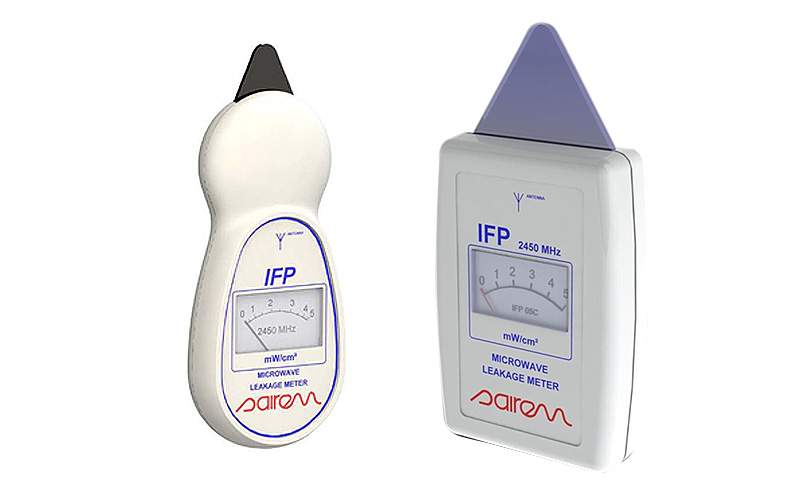
Should you like further information about these products or would like a quotation, please indicate your requirements by completing the form contact.
